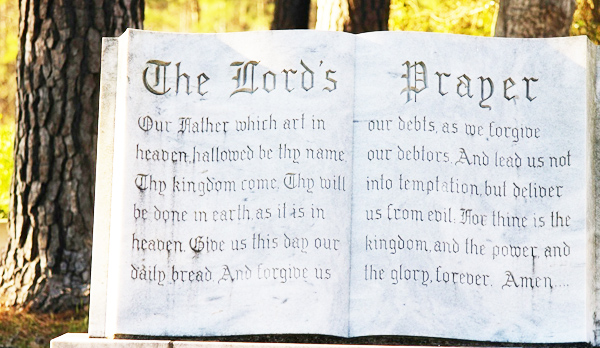Now the word of the LORD came to Jonah the son of Amittai, saying, “Arise, go to Nineveh” (Jonah 1:1-2). God spoke plainly to Jonah and instructed him to visit the capital city of Israel’s enemies with a message of repentance and, ultimately, grace. Yet Jonah refused. Why did Jonah — and why do we still today, as recipients of the Great Commission — disobey God?
Devotions
You Can’t Teach What You Don’t Know
In Deuteronomy 6:5-7 we are reminded that we cannot teach what we don’t know. We are told first, “You shall love the Lord your God with all your heart and with all your soul and with all your might” (5), and then we are instructed to teach God’s Word diligently to our children (7). You cannot teach your children (or friends, or co-workers, or others you have opportunity to disciple) to love what you do not love yourself.
Overcoming Disagreement For God’s Glory
Now concerning our brother Apollos, I strongly urged him to visit you with the other brothers, but it was not at all his will to come now. He will come when he has opportunity (1 Corinthians 16:12). Even our very best plans often meet with significant snags. Many variables can conspire to derail our plans, but one in particular often proves a great help or hindrance in our efforts: people. Planning would be so easy if it weren’t for other people with other opinions! Pastoring, marriage, child-rearing, and evangelism would all be a cinch if you just didn’t have to
The Daily Relevance of Jesus’ Resurrection
I delivered to you as of first importance what I also received: that Christ died for our sins in accordance with the Scriptures, that he was buried, that he was raised on the third day (1 Corinthians 15:3-4). The resurrection of Jesus is a pivotal point in human history. And it is, as Paul reminds us here, a pivotal point of the Christian message. Indeed, no one was more aware of, or insistent upon, its significance than Jesus himself.
Your Salvation: Paid In Full
When Jesus had received the sour wine, he said, “It is finished,” and he bowed his head and gave up his spirit (John 19:30). The phrase Jesus uses here on the cross expressed a business transaction completed: “paid in full.” At the heart of trusting in Jesus Christ for salvation is the confidence that nothing else needs to be added to the price he paid, in his death, for our salvation. Do you live in the reality of a fully-paid salvation each day?
Magnify Him With Thanksgiving
I will praise the name of God with a song; I will magnify him with thanksgiving (Psalm 69:30). At first glance, the psalmist’s declaration may seem strange. How does one “magnify” the omniscient, omnipresent, almighty God who holds the universe in his hand? In other words, how can anyone make an everywhere-present God bigger?
No One Who Abides In Him Keeps On Sinning
No one who abides in him keeps on sinning; no one who keeps on sinning has either seen him or known him (1 John 3:6). This is a sobering passage. It is meant to be. However, it should not be a passage that causes the Christian believer to despair. John is not condemning the one who is seeking to overcome sin, but the one who habitually gives into sin without repenting. John purposefully describes here the one who is (or is not) continually sinning (as is evident from the “linear present”, or continuing action, of the verbs in the original
What Is Salvation, and Where Is It Found?
For by grace you have been saved through faith. And this is not your own doing; it is the gift of God (Ephesians 2:8). Salvation means “to deliver” someone out of danger. Salvation, especially in the Bible, implies then that people need to be saved. It also implies that someone is able and willing to save the person who needs to be saved. The Bible teaches that Jesus Christ is the only source of true salvation for any human being.
Test Yourself, but Trust In Jesus
Examine yourselves, to see whether you are in the faith. Test yourselves (2 Corinthians 13:5). Paul’s exhortation to be regularly testing the sincerity and purity of your own faith is not given in order to make you doubt your salvation every other day. Faith in Christ is exactly that: faith in Jesus’ finished work, not in our own faithfulness. However, we are to be regularly doing the hard work of honest self-appraisal.
Jesus Says, “I Am the Door”
I am the door. If anyone enters by me, he will be saved and will go in and out and find pasture (John 10:9). It is easy and common to skip over this reference of Jesus to himself as the door and jump straight to him as the shepherd (also in this passage in John 10). But pause and consider that Jesus says he is not only the shepherd of his sheep but he is also the door. In other words, Jesus is not only the shepherd of the sheep, but he is also the way through which he leads
Location, Location, Location
There is therefore now no condemnation for those who are in Christ Jesus (Romans 8:1). There is a well-known real estate maxim that lists the three most important characteristics of any property: “Location, location, and location.” This famous real estate maxim holds true in the Bible, as well. In the Old Testament in particular leaving Israel is seen as departing from God, and returning to Israel represents one’s returning to God.
Crushed For Our Iniquities
He was pierced for our transgressions; he was crushed for our iniquities; upon him was the chastisement that brought us peace, and with his wounds we are healed (Isaiah 53:5). At the heart of the gospel — at the heart of what happened on the cross to Jesus Christ — is substitution. It is Jesus taking the place, and therefore the punishment, of sinners who deserved God’s wrath. At the cross, Jesus got what we deserved. Isaiah 53:5 gives us this clear insight into Jesus’ death.
Lead Us Not Into Temptation
Lead us not into temptation (Luke 11:4). (Today’s is the last in a brief series of meditations on the Lord’s Prayer.) James says no one can say God has tempted him; this request, then, is for God to keep us from situations where we might fall. It is a recognition of the dangerous, bait-riddled, sin-inducing nature of this world. If love of money doesn’t get us, perhaps the temptation to fit in with the crowd will.
Forgive Our Sins
Forgive us our sins (Luke 11:4). (We are continuing in our brief series of meditations on the Lord’s Prayer.) Jesus teaches us to pray daily (see previous post) for the forgiveness of our sins, assuming (as we ought to) that we have strayed from the mark each day. Sins are sins — they are not merely mistakes, flaws, personality, or “my truth versus your truth.” And every sin is against God ultimately, and so must be dealt with before God (Psalm 51:4)
Give Us Our Daily Bread
Give us each day our daily bread (Luke 11:3). (We continue today in our brief series on the Lord’s Prayer.) The opening requests that Jesus models for us are about God — so like God they are majestic, huge, and inspiring. A lesson Jesus clearly means for us to learn in this prayer is that God comes first, and only when God is first does everything else matter or fall into place. However, the following pleas that Jesus himself places in our mouth are about us — and like us they are daily, mundane, unspectacular.












